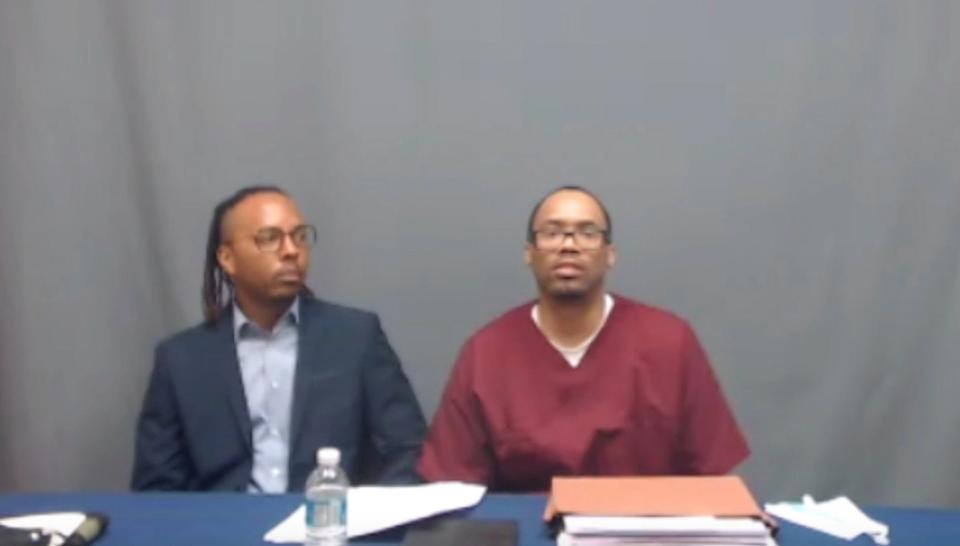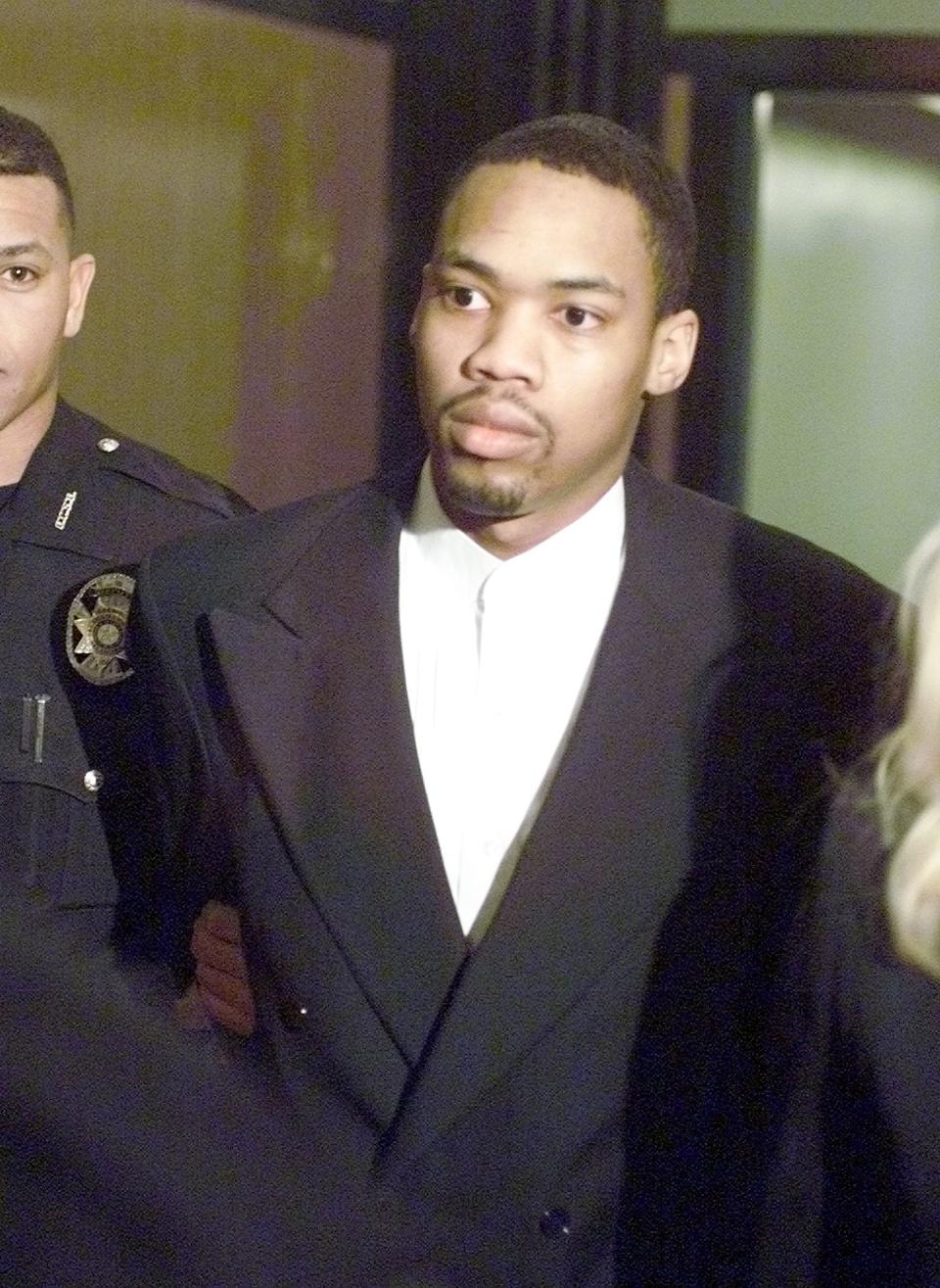What to know about Julius Jones and the governor's commutation of his death sentence
Gov. Kevin Stitt, following a recommendation from the Oklahoma Pardon and Parole Board, on Thursday granted clemency to death row inmate Julius Jones, reducing the inmate's sentence to life in prison without the possibility of parole.
“After prayerful consideration and reviewing materials presented by all sides of this case, I have determined to commute Julius Jones’ sentence to life imprisonment without the possibility of parole," Stitt said in a statement.
Stitt's announcement came just hours before Jones was scheduled to be executed at 4 p.m. Thursday at the Oklahoma State Penitentiary in McAlester.
Jones, now 41, spent more than half his life on death row for the murder of Edmond insurance executive Paul Howell. With the governor's commutation, Jones will move off of death row.
Live updates: Julius Jones execution

More: Family, supporters of Julius Jones make final pleas ahead of Thursday execution
Here is a look at what we know heading into Jones' scheduled execution on Thursday:
Who is Julius Jones and what did he do?
Jones was facing execution for the 1999 fatal shooting of Howell during a carjacking. Jurors chose the death penalty as punishment at a 2002 trial.
Howell was gunned down in his parents' driveway in Edmond after a back-to-school shopping trip with his daughters. Stolen was his 1997 Suburban.
Jones was 19 at the time of his arrest.
"The truth is: I did not kill Mr. Howell," Jones wrote. "I did not participate in any way in his murder; and the first time I saw him was on television when his death was reported."
Timeline: From a murder charge to requests to commute his execution
His innocence claim has attracted support from both celebrities and well-known athletes. Millions signed a petition in his support after ABC in 2018 aired the documentary series, "The Last Defense," about his innocence claim.

Jones was directly implicated at trial in the fatal shooting by his friend, Christopher Jordan.
Under a plea agreement, Jordan pleaded guilty to first-degree murder and conspiracy to commit a robbery for his role and was sentenced to 30 years in prison.
Jones claims Jordan is the actual killer and framed him to get a deal.
"There are multiple men who did time with Christopher Jordan who reveal that Jordan regularly and casually confessed to killing Paul Howell," Jones wrote.
Prosecutors counter these new witnesses are not believable.
See photos: Julius Jones' execution is scheduled for today, and supporters turned out to rally
For instance, they pointed out that an Arkansas inmate who claims Jordan "spilled his guts" in 2010 once shot himself to file a false workers' compensation claim.
They also told the board that inmate Roderick Wesley was diagnosed as having Antisocial Personality Disorder.
"Lying is a hallmark of ASPD and Roderick Wesley is no exception," they wrote.
"Jordan said to me 'my co-defendant is on death row behind a murder I committed,'" Wesley said in the statement given to the parole board. "He was acting like he was sorry for what he had done but he said that he was not going to jump out there and give himself up to the wolves."
Stitt chose to modify Parole Board's recommendation
Stitt had the options of adopting, modifying or rejecting the Pardon and Parole Board's recommendation for clemency. He ultimately chose to modify the board's recommendation of commuting Jones' death sentence to a sentence life with the possibility of parole.

The board voted 3-1 to recommend his sentence be reduced to life with the possibility of parole.
The governor also could have granted a stay of execution to give himself more time to reach a decision.
Former Gov. Brad Henry, a Democrat, instituted 30-day execution stays on multiple occasions to give himself more time to consider clemency recommendations.
This article originally appeared on Oklahoman: Who is Julius Jones and what did he do?

